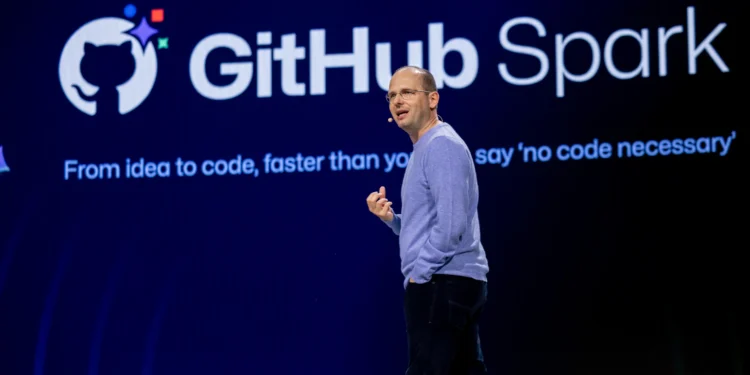Microsoft CEO Satya Nadella recently announced GitHub Spark, a new AI-powered tool within Copilot that can transform natural-language prompts into full-stack applications. Officially launched on July 23, 2025, Spark is now available in public preview to Copilot Pro+ subscribers. The Verge highlighted that Spark uses Anthropic’s Claude Sonnet 4 model to build and deploy entire apps with natural‑language input, no coding required.
What’s the Competition?
Just two months earlier, Google released a similar AI tool designed for no-code app generation, which we explored in an earlier article: Google Launches Jules AI Coding Assistant and Tests Pinterest-Style Image Feature. However, reports suggest it hit early technical snags, with many users facing deployment failures and performance lags shortly after launch. While not a full failure, its rocky rollout has clouded its reception.
This puts Microsoft’s launch at a curious crossroads: they’re entering the same AI-driven app space just as Google stumbled, and as they’ve simultaneously announced a new partnership with Replit to bring Azure hosting directly into Replit’s IDE. So even as Microsoft expands into no-code AI tools, it’s also busy feeding Azure’s ecosystem through Replit, a move that seems unusually strategic.
What This Means for the Middle East
- More accessible tools, wider impact
GitHub Spark’s promise to turn simple English (or Arabic) into live apps can empower students, startups, and dev teams across the region. Imagine local innovators building fintech, e‑learning, or e‑commerce apps without a traditional coding background.
- Strengthening Azure’s regional footprint
Microsoft’s push into Replit signals a deeper strategy to root Azure services in developer workflows across the Middle East. With Azure data centers already operating in the UAE, Saudi Arabia, and Qatar, this could accelerate regional adoption.
- Competitive edge vs Google Cloud
Google’s early hiccups with its similar tool have given Microsoft a lead in the race for AI-based app creation. If Spark delivers on its no-code promise more effectively and ties into Azure’s backend, it could entice startups and governments to choose Microsoft over Google in the Middle Eastern market.
Why This Move Is Strategically Fascinating
- Timing & Temptation: Launching Spark shortly after Google’s misstep gives Microsoft a chance to capture mindset and market share.
- Cloud Strategy Meets Dev Experience: Replit + Azure combines hosting and weaving Microsoft’s cloud into the fabric of how developers work, learn, and deploy in the region.
- Multi-model Ambition: GitHub’s existing philosophy of supporting multiple AI models (Claude, Gemini, GPT‑4, etc.) extends into Spark, making it more adaptable than single‑model competitors.
Editor’s Note
GitHub Spark is a strategic gambit. Microsoft is leveraging Google’s stumbles, plugging Spark into GitHub and Azure, and integrating deeply with Replit to shape how developers build in the Middle East and beyond. For regional tech leaders, educational institutions, and startups, Spark may herald a new era of accessible, high‑impact app development, ushering in exciting possibilities for innovation across the region.















Comments 1